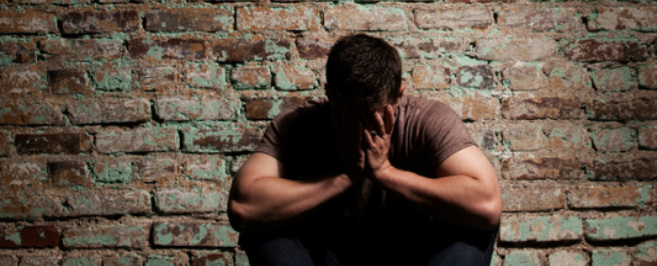It is hard for young men to cry. Research has shown that crying is more of a female way of expressing grief, but not men. In fact, boys know that men should be strong in times of difficulty from a very young age. They are also encouraged not to display their emotions and not to complain in times of pain. Additionally, the influence of our culture is so extreme that some men genuinely feel they are physically unable to produce tears in response to grief.
Tomorrow I’m going to the funeral of my aunt who suddenly died of cancer. I haven’t cried since her death. However, I’m wondering if this has to do with me or our culture. Besides, how will I grieve if I won’t cry?
To explain this, I came across an article that interviewed 25 young men who had lost a male friend to a non-health-related accident (e.g., drug overdose, car accident, etc.). A few themes came to the surface from these interviews:
Emptiness
One young man’s friend died at an after-graduation party. They were in the back of a van, and they stopped the van when they saw another group of friends on the sidewalk. His friend got out of the bus and ran to meet them. Unfortunately, he was hit by a bus as he crossed into the next lane. Besides, the accident occurred in full view of his colleagues on the van and the footpath. During the interview, this young man described a feeling of shock after the event and then passivity -he could do nothing. To put his feelings into perspective, he took a picture of an empty bucket on its side. With no action to take and no suitable emotional response, all he had was a feeling of emptiness.
Anger
For men, anger is a culturally acceptable response to loss. And in some instances, violence is acceptable. People also believe that men sometimes can’t control their anger.
During the interview, a young man told about a friend who was shot dead by a policeman who responded to domestic violence. In the interview, he would grasp the table in anger. He considered acting out in revenge but didn’t take his rage that far.
“It’s a stupid male thing, but because it was a violent death, I felt a lot of retribution and revenge. I was consumed with anger, and the [girls] went straight to sadness, not all the anger and stuff.”
Sadness
Among the young men in the interview, some did express sadness, but not many. Those who did seemed to have non-western cultural backgrounds. Perhaps their parents had moved from another country. The sadness shown by these men seemed to mean they would have done or said something different to prevent the death. This left them dwelling in regret blaming themselves, thinking, “What if I did something different?”
The above three expressions of grief (emptiness, anger, and sadness) seem to stem from three primary identities: Adventurer, Father figure, and Lamplighter.
Adventurer
The first of these identities is the “adventurer.” The young men who seemed to follow this pattern defined their lives primarily by pursuing new experiences and culture. They had little attachment to any particular person, place, or thing. Their lives needed freedom only. The idea of mourning with friends was considered a suffocating experience.
One young man’s friend died while he was travelling. He was struck with sadness and felt like his friend was “far away.” He decided that engaging in a new adventure through his continued travels was the best way to honour his friend. Although they had short, superficial relationships with co-adventurers, these individuals were primarily isolated, and their actions could seem insensitive to others.
The Father Figure
This identity was entirely distinct from the adventurer. They focused on protection, responsibility, and loyalty, instead of experience. These men felt successful if they maintained a strong family bond, cared for their families and succeeded in their academics or work.
In grief, these men thought their role was to support those left behind, especially women. They knew they had to be strong for others- This meant not displaying emotions. Showing emotion is thought of as making it harder for others to contain or control their emotions.
“You don’t want to trigger other people. When they’re trying to deal with [things differently]… you don’t want to, you know, step on boundaries.”
Lamplighter
Another small group of men seemed to have a re-birth after the death of their friend. Death became a wake-up call from a reckless or meaningless life. These young men decided to change their lives and be an example to help others. This was like using their lives as lamps to lighten paths for those living recklessly and help direct them away from their bad habits.
A young man who was addicted to alcohol, his friend, died of a drug overdose. His friend’s death made him evaluate his life. He decided to change to help others who were drug addicts like his friend.
“I just wanted to be happy and touch other people like [his friend] that are going through a hard time and let them know that it’s not as bad as it seems.”
After reading this study, I see myself in some of the stories. I empathize with the emptiness and the feelings of responsibility some of these young men experienced. Our culture has restricted men’s ability to express themselves, and men have to adapt how they manage their emotions. Sometimes this happens in ways that are more productive than others. Hopefully, being aware of this grief process will help men find peace and help those around them understand their journey.
By Dr. Syras Derksen
Winnipeg Psychologist
Reference:
Creighton, G., Oliffe, J. L., Butterwick, S., & Saewic, E. (2013). After the death of a friend: Young men’s grief and masculine identities. Social Science and Medicine, 84, 35-43.

